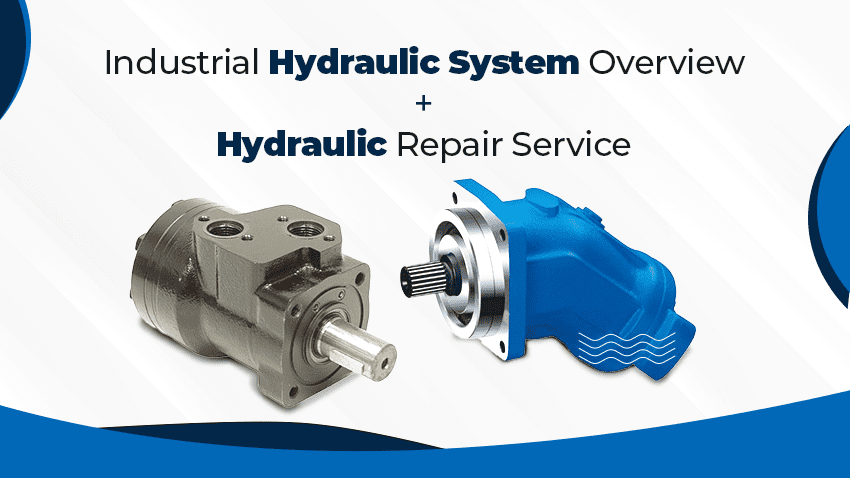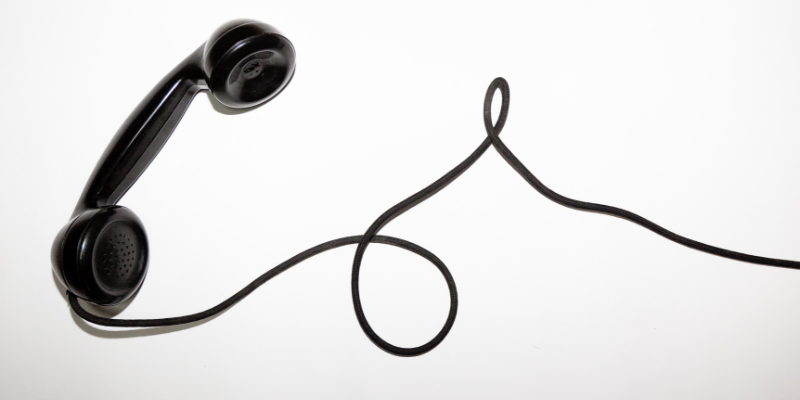Industrial Hydraulic System Overview & Hydraulic Repair Service

Hydraulics are everywhere!
You probably already own and use some hydraulic equipment, or you likely wouldn’t have clicked on this page. You may even be a business owner or industrial business manager who’s looking for a good hydraulic repair service provider. If so, AES is the name you can trust for hydraulic equipment service!
But if you’re not all that familiar with the ins and outs of hydraulics, AES is here to educate you. Hydraulics are literally all around you, whether you realize it or not. Hydraulic components are utilized in everything from elevators to dump trucks to cranes to cars. Hydraulics are capable of lifting some pretty heavy loads and can also operate at some very high speeds.
How do hydraulic systems work?
Hydraulic cylinders were first developed over 300 years ago, and are based on Pascal’s law of fluid pressure. Stated simply, whenever pressure is applied on a fluid, equal pressure will be exerted throughout the fluid in all directions. When focused in a confined space, this hydraulic force can be multiplied to power a substantial amount of work in a focused application.
This principle enables hydraulics to be useful in pretty much any application where strong push or pull forces are required. With a hydraulic system, a little applied force can go a very long way. Hydraulics also import much more flexibility into the design of your system and ultimately provide for more efficiency as well. Hydraulics areused in a wide range ofpersonal, commercial, and industrial applications, from transportation to manufacturing, to production, to construction, to energy generation, to mining, to various offshore pursuits.
Hydraulic system components
Hydraulic systems typically include a few essential components which control how these systems work:
Hydraulic Reservoir
Hydraulic systems typically leverage a reservoir to hold excess fluid which is then drawn upon to power the mechanism in question. This fluid needs to be kept as cool as possible, and metal walls serve to conduct heat away from the fluid. An unpressurized reservoir also allows trapped air to leave the liquid, thus improving efficiency.
Hydraulic Fluid
Hydraulic fluids can vary, but the properties of oils are usually preferred. Hydraulic oils can be petroleum-based, mineral-based, or vegetable-based. The specific fluid chosen will depend upon the properties called for with the particular hydraulic application in question. For example, brake fluids need to have a higher boiling point due tothe amount of heat generated through the braking mechanism. Other hydraulic fluid properties of note include lubrication, viscosity, and resistance to radiation.
Hydraulic Engine or Hydraulic Motor
Hydraulic motors are often gasoline-powered, but an electric hydraulic motor can also work well for certain applications. For a big machine, the hydraulic power plant needs to be capable of generating a lot of force.
Hydraulic Pump
The hydraulic pump sends a flow of oil (or other fluid) through the valve and into the hydraulic cylinder. Pump efficiency is typically measured in gallons per minute, pounds per square inch (psi), or both.
Hydraulic Cylinder
The hydraulic cylinder receives the high-pressure fluid from the valves and then actuates the desired movement.
Hydraulic Valve
Hydraulic valves help transport fluid around the system where it’s needed by controlling important factors like pressure, direction, and flow.
Hydraulic system repair by the pros at AES
The trained team of experts at AES can provide repairs for any type of industrial hydraulic equipment, ranging from pumps, to motors, to valves, to cylinders, to servo drives, and more. Here are some of the hydraulic issues we can address:
- Hydraulic Pump Repair, including pistons, vanes, & gears
A faulty piston pump can take your entire hydraulic system offline. There’s no need to stress about trying to replace your entire unit; the AES team can repair your hydraulic pump and get your system up and running again!
- Hydraulic Cylinder Repair
Hydraulic cylinders are powerful, efficient tools, but these moving parts are also susceptible to wear and tear over time. Our team is specially trained and equipped for providing hydraulic cylinder testing and repairs.
- Hydraulic Motor Repair, including pistons, vanes, & gears
Hydraulic systems use pressurized liquids in order to accomplish work, but they still need a motor to make everything go. And like any other type of motor, a hydraulic motor will eventually wear out, break down, or require some specialized maintenance and service to keep it running.
- Hydraulic Valve Repair, including flow control, pressure control, & directional
Valves are a necessary component of practically every hydraulic system. A hydraulic valve acts as a sort of switch, directing where the fluid should go in order to operate key devices like hydraulic motors, pumps, and actuators. Some common issues that arise with hydraulic valves include seal issues, hardware issues, faulty spring assemblies, or spools that simply need some service.
Choose AES to serve your hydraulic system service needs
Sure, other companies may claim to offer hydraulic equipment repair service, but nobody offers the same level of careful workmanship and personalized customer service as AES! We’ll take care of your hydraulic repair needs, and we’ll also take good care of youat the same time.
We’ve been providing quality electronic and industrial mechanical repair from our founding in 1992, and we continue to do so today, including offering acomplete slate of hydraulic equipment repairs and services. You can trust AES with your hydraulic equipment repairs, and you can also entrust your other industrial equipment needs to us as well.
Ready to get started? Just fill out our Request A Quote form, shoot us an email at sales@aesintl.com, or for faster service, you can just give us a call at (866) 386-1001 . We’ll do our best to provide what you need, when you need it, and we’ll do so with the best customer service in the business! Got a hydraulic equipment problem that needs fixing or addressing? AES is here to help!





